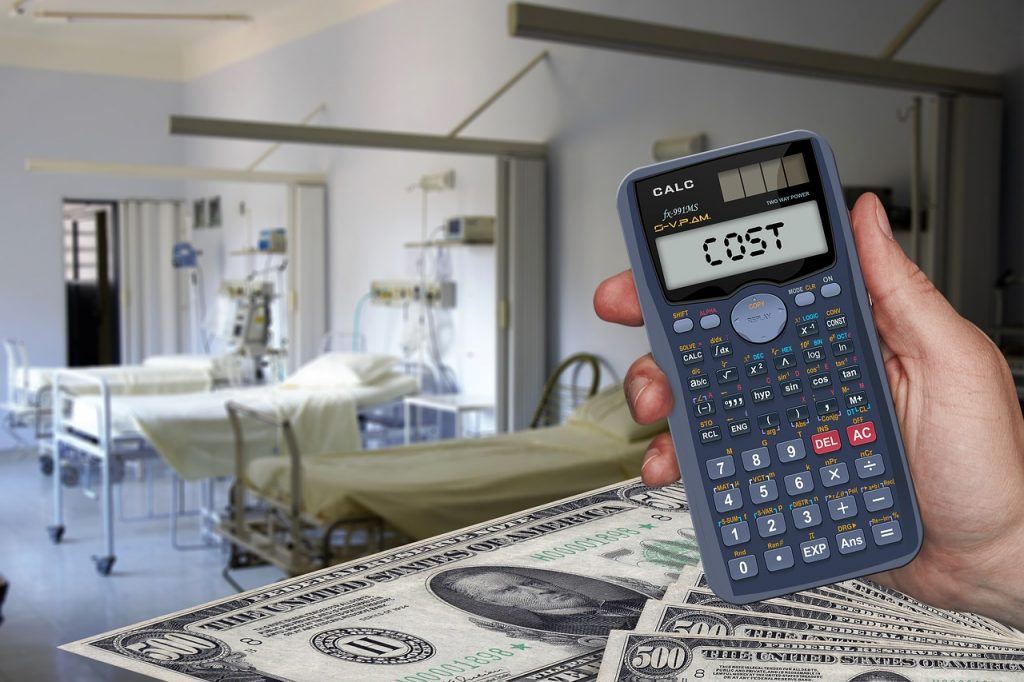
Background on Medicare Advantage and Health Risk Assessments
- Medicare Advantage
Medicare Advantage, also known as Medicare Part C, is a program that allows the Centers for Medicare & Medicaid Services (CMS) to enter into contracts with private insurance companies, often referred to as Medicare Advantage Organizations. Those private insurers then provide Medicare services through their private health plan options as an alternative to the “original” federally run Medicare fee-for-service system. As of 2019, about 40 percent of the entire Medicare population was enrolled in Medicare Advantage.
Given that Medicare patients have different needs based on their health status, CMS developed a process called “risk adjustment.” The process allows CMS to adjust its reimbursement to the private insurers based on the complexity, or “risk,” of each patient’s case.
- Health Risk Assessments
In order to find out the complexity, or risk, of every Medicare patient’s health care needs, a Health Risk Assessment (HRA) must be conducted. There are a number of ways to conduct an HRA, including an assessment in a Medicare patient’s own home.
It is those in-home assessments that are largely the source of the problem for the OIG. Specifically, over the years, CMS has questioned whether private health insurance companies have been using the in-home HRAs improperly. The fear is that they are using the in-home HRAs as way to find and submit more diagnoses for patients – thereby increasing payments to the insurance companies – without improving the medical care for those patients. The OIG’s recent report seems to confirm that those fears may be well founded.
The OIG’s Findings
In its September 2020 report, the OIG made three specific findings:
- $2.6 Billion in Questionable Medicare Payments. The OIG found that diagnoses reported for a patient as a result of one HRA, without any follow up doctor appointment, resulted in an estimated $2.6 billion in risk-adjustment payments in the year 2017. In other words, private insurers may have used the HRA as a strategy to increase payments to their companies in the amount of $2.6 billion, and those payments are suspect because they are based on a single
- Most of Questionable Payments Resulted from In-Home HRAs. The OIG further noted that 80 percent of the $2.6 billion in risk-adjustment payments was the result of in-home HRAs. Significantly, in-home HRAs are typically not conducted by the patient’s primary care doctor, but rather by a third-party company affiliated with the private insurance companies.
- 20 Private Insurers Received Millions, Though Patients Did Not Receive Any Healthcare Services Over the Course of a Year. Finally, the OIG found that 20 private insurance companies in particular generated millions of dollars in risk-adjustment payments from in-home HRAs, even though the patients who received the HRAs did not receive any other healthcare services for the entire year.
Accordingly, the OIG concluded that either (i) the private insurance companies may not be submitting healthcare service records as required, or (ii) the patients are not receiving appropriate follow-up care after an HRA is conducted. Most importantly, the OIG concluded that private insurance companies may be receiving unnecessary risk-adjustment payments based on HRAs with inaccurate or unsupported diagnoses.
The OIG’s Recommendations
To address the possibility that private insurance companies received $2.6 billion more than they should have under Medicare Advantage, the OIG made five specific recommendations:
- Require the private insurers to implement best practices for follow-ups to HRAs;
- Impose increased oversight over 10 of the private insurers that received most of the risk-adjusted payments resulting from in-home HRAs;
- Impose increased oversight over the 20 insurers who received risk-adjustment payments, even though the patients received no further care a year after getting the HRA;
- Reassess whether in-home HRAs should be permitted; and
- Flag any private-insurer-initiated HRAs in a patient’s Medicare Advantage profile.
Push Back from CMS
Interestingly, CMS appears to have bristled a bit in response to the OIG’s report. In fact, the CMS only agreed to implement two of the five recommendations; namely, agreeing to increased oversight of the companies that received the majority of the risk-adjustment payments following in-home HRAs, or when patients received no further care after the HRA.
In addition, the Better Medicare Alliance, which is an organization funded by the private insurance companies UnitedHealthcare, Aetna, and Humana, criticized the OIG for having “tunnel vision” with regard to the use of HRAs, and in cherry-picking data to reach a conclusion.
Conclusion
The OIG Report on the use of in-home HRAs under Medical Advantage is cause for concern. Even though $2.6 billion is, relatively speaking, only a small part of the $264 billion cost of Medicare Advantage overall, the Medicare Advantage upcoding is probably the tip of the iceberg.
If you have further questions, please feel free to contact the Whistleblower Firm – Nolan Auerback and White, LLP. We have the experience and resources to protect healthcare fraud whistleblowers. Contact us online, or by calling 800-372-8304 today.